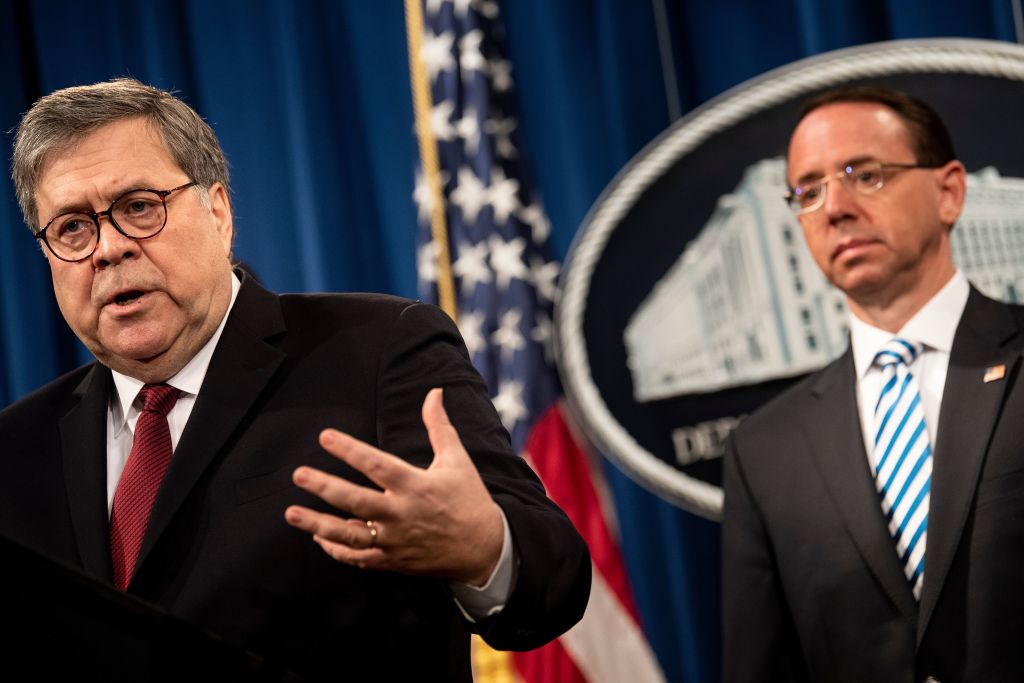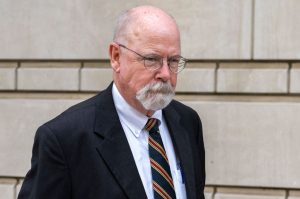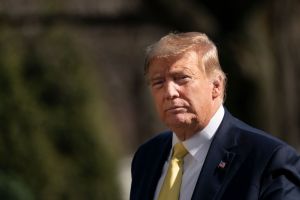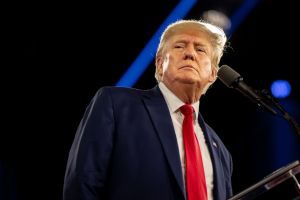When Robert Mueller was appointed as Special Counsel, ‘[t]he President slumped back in his chair and said, “Oh my God. This is terrible. This is the end of my presidency. I’m fucked.”’ This is just one of the beautifully telling vignettes from the Mueller report, published today. Another is Donald Trump saying to his lawyer, Michael Cohen, that the campaign for the presidency was a great ‘infomercial’ for the Trump Organization’s hotels and real estate.
In these pages, Trump is the man we always supposed him to be – crude, crass, a candidate and a president who ignores the rules out of a mixture of bombast and ignorance. The emphasis in this report is – as expected – different from the spin put on it by the attorney general, William Barr. But Mueller does not say that the president was part of a criminal conspiracy with Russia. Skimming the 400 pages of what are two separate reports, the impression is that the real trouble for Trump may lie in what Mueller says about obstruction of justice. The Special Counsel cannot bring himself to say of the president’s actions that ‘no criminal conduct occurred’.
But first, collusion, which is dealt with in the first of the report’s two volumes. It speaks of ‘multiple contacts or links,’ between members of the Trump campaign and various figures with ties to the Russian government. But ‘based on those links, the investigation did not establish there had been coordination’. That word ‘establish’ is key, encompassing the very high standard of proof beyond a reasonable doubt required in criminal cases. Still, the number and nature of the links between Trumpworld and the Kremlin may be unprecedented. This is especially true given Mueller’s firm conclusion – shared by most of the US government, if not the president – that the Kremlin was at the time mounting a sophisticated attack on the US election.
There are no startling revelations in the report but the ‘contacts or links’ are documented in minute detail, meeting by meeting, phone call by phone call. Here, again, is the Trump Tower meeting, Don Jr being offered dirt on Hillary and declaring ‘I love it.’ Here, again, is George Papadopoulos, getting advance notice that Russia had hacked the Democratic party’s emails. Here, again, is Michael Cohen trying to get a Trump Tower built in Moscow – the biggest and most lucrative project the Trump Organization had ever tried to do, and no mention of it during the election.
Cohen claimed to Mueller’s investigators that it hadn’t even crossed his mind that there might be ‘political implications’ in trying to get a Trump Tower Moscow – and doing it while hiding the fact until well after voting had taken place. I once asked a former Russia specialist on President Obama’s National Security Council how many Russian contacts they’d had during their campaign. ‘Zero,’ he said. Mueller’s report found that those close to Trump did not take criminal steps to coordinate with the Kremlin – for instance by having foreknowledge of the hacking – but the campaign was sometimes ‘receptive’ to getting whatever help was being offered – for instance benefitting from the fruits of that hacking.
But a Democratic House of Representatives may now be more interested in obstruction rather than collusion. Before Mueller completed his investigation, there were reports that he’d had a row with Barr over whether Trump should be prosecuted for obstruction of justice. Those reports look all the more convincing now that Mueller’s report is in, with its ‘10 instances’ where the facts are ambiguous on whether the president may have obstructed justice. Mueller confirms media reports from 2017 that at one stage Trump called his White House Counsel, Don McGahn, at home, and ordered him to fire Mueller for having ‘conflicts of interest’.
To Trump’s critics, it is as if Mueller has painted a damning picture of obstruction, only for Barr to come along, take a look at the canvas, and throw a bucket of whitewash over it. Those critics, especially in Congress, will have noticed the part of volume 2 where Mueller says: ‘Congress has authority to prohibit a President’s corrupt use of his authority in order to protect the integrity of the administration of justice.’ In case anyone misses the point, he also says: ‘The conclusion that Congress may apply the obstruction laws to the president’s corrupt exercise of the powers of office accords with our constitutional system of checks and balances and the principle that no person is above the law.’ Both passages will be seen by some as an implicit referral to Congress for an impeachment inquiry.
The president’s lawyers – who had advance copies of Mueller’s report – issued a statement saying that Trump had been ‘completely’ vindicated. They said that the attorney general and the DoJ had concluded ‘there was not a single instance in which the elements of any crime were met’. Trump’s enemies in Congress will say that voters expect more from their president than just not committing a crime. The mood does now seem to be against impeachment – the House speaker Nancy Pelosi said it wasn’t worth the bother. But the arguments will continue. Whether the issue is collusion, or obstruction, Mueller’s report has provided plenty of ammunition for Trump’s enemies. The president is not ‘fucked’ as he feared when Mueller was appointed – but neither is ‘Russiagate’ over just yet.
Paul Wood is a BBC correspondent.


















